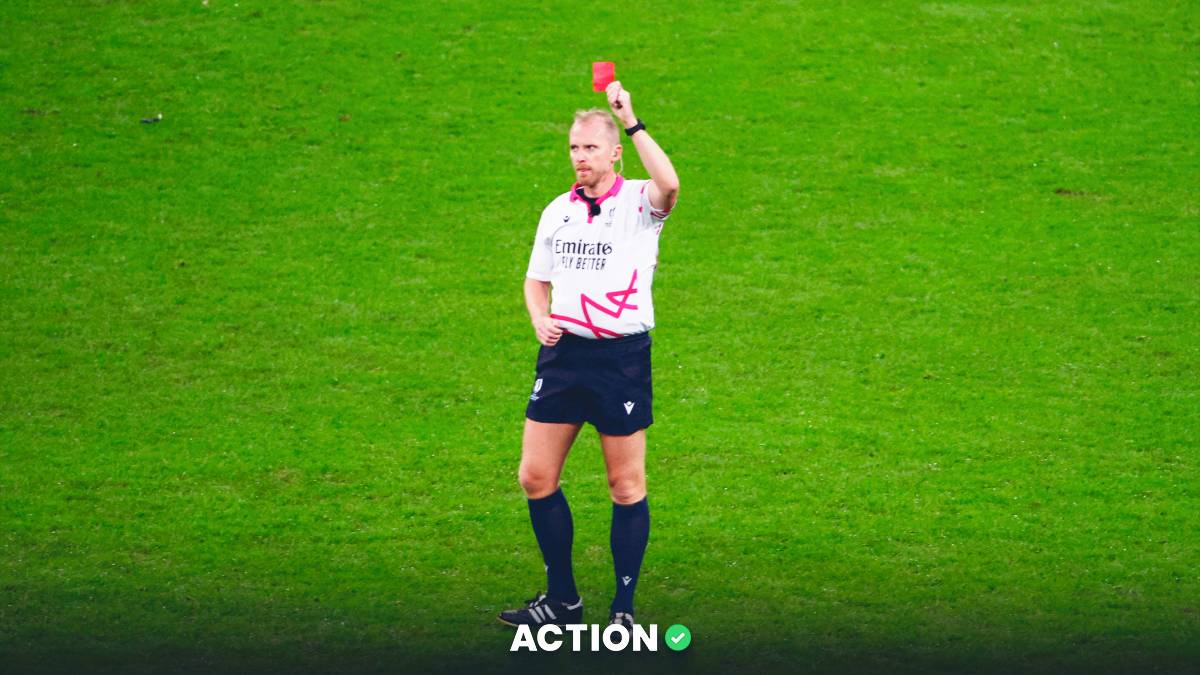"I'll fookin’ kill you with me bare hands at the pub by the pitch, you wanker!”
One imagines some variation of this phrase was written more than once on the social-media platform X by distraught viewers of — and bettors on — the 2023 Rugby World Cup.
In a way, it’s human nature to react accordingly after a muffed play or call — especially if your wallet’s just been lightened. But, at minimum, it’s not cool to post stuff like this on social media, particularly when it’s directed at a specific athlete or official.
Is it criminal, though? That’s where Signify comes in.
In a nutshell, the London-based firm uses proprietary artificial intelligence to scour social media for various levels of harassment and threats against individuals and organizations, including those involved in sport. Obviously, there’s a ton of trash to sift through; Signify’s job is to identify that which is truly rancid and has the potential to be destructive in real life.
"Those sports with a high betting interest — basketball, tennis, soccer, football — attract high levels of abuse,” Jake Marsh, Signify’s head of sport, told Action Network. “A lot of is due to inherent racism, xenophobia, homophobia. Other issues come to the fore. During March Madness, there were around 4,000 verified abusive messages from the second round onward. Within that, there were about 500 abusive posts connected to betting.
“In our experience, when you take the fight back to people doing the abuse, a lot of them are just cowards."
While monitoring online abuse during the 2023 Rugby World Cup, Signify’s Threat Matrix reported incidents to law enforcement in Australia, France, New Zealand, South Africa and the U.K. At least one of these reports resulted in an arrest and criminal charge, although Signify declined to provide specifics on this situation.
It’s been an uphill climb just to get to this point, largely due to a defeatist attitude surrounding what can be done to police online harassment.
"In sport, in particular, it's very early days,” said Marsh, whose firm counts the NBPA, NCAA, English Premier League (EPL) and several major pro tennis entities among its clients. “Sport is now seeing they can do something about this and need to do something about this to protect their human assets. I think part of the problem is there's probably been a bit of an attitude that we can't do anything about it — how can you stop people from going online and doing what they want? That's like saying you can't stop crime.
“Part of what we're trying to do is show that there are things that can be done to stop people from going online and sending abuse. It's not just where we give up and blame the social-media companies. We work with investigators, the police, lawyers who can write cease-and-desists."
‘The Whole World Is Just Coming to Grips With This’
While Signify’s stock service is to scan social-media posts in the public domain, it is also capable of analyzing direct messages if granted access by an athlete or sporting entity.
"We're not looking at messages, you know, from family and friends,” Marsh said of his company’s DM monitoring. “It's only people who are sending you threats and abuse. A lot of abuse of athletes is in their DMs, and a lot of it is around betting."
Data collected by the NCAA bears this statement out. In May, the organization disclosed that 15 to 25% of abuse facing its athletes was betting-related, and that one in three “high-profile” athletes had been subjected to abusive comments from bettors.
And while growing interest in women’s sports is undoubtedly a good thing in general, it comes with a depressing downside, as the NCAA reported that women’s basketball players are three times as likely as their male counterparts to be subjected to online threats.
“I think the whole world is just coming to grips with this,” said Marsh. “Action and consequences are a big part of it.”
Marsh noted that one prominent client, the EPL’s Arsenal Football Club, had seen a marked improvement in fan behavior online as a result of Signify’s monitoring and intervention.
"In the last three seasons, they've banned at least 26 people within their own membership,” he said. “At Arsenal, the waiting list [for season tickets] is 25 years, so if you get banned for online abuse, that's a life ban — you're out. That has had a real impact. This season, the level of homophobic incidents went down and the number of bans went down significantly."
New Partnership Tackles Prevention
Rooting out bad behavior online and escalating it to the point of potential punishment are important tools, but so is prevention. And Signify recently announced a partnership with gambling-harm prevention specialists EPIC Global Solutions that it hopes will cover that base as well.
“When they're talking about gambling risk, gambling harm and the effects gambling can have as an athlete when you don't get as many rebounds as you should, we'll be able to give EPIC exactly the advice they need to advise players how to be safe online and how to protect themselves,” said Marsh. “Athletes often will get abuse on their DMs and then repost it online. It just creates a pile-on and gets worse. We'll help them with advice to have a safer online experience.”
This partnership, according to a press release, will also encompass “digital product development” that could conceivably result in an e-learning supplement to EPIC’s in-person outreach to amateur and professional athletes and team staff.



















































